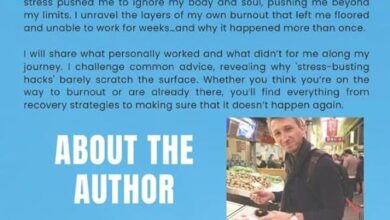
Why Do I Always Feel Tired: Energy Boosting Solutions
Feeling tired constantly may be due to various factors, such as insufficient sleep or underlying health issues. As a result, identifying and addressing the root causes is crucial to alleviate chronic fatigue.
Experiencing persistent tiredness can significantly impact daily life, making it essential to understand its potential causes. While lack of sleep is an obvious factor, underlying health conditions like anemia, thyroid problems, or chronic fatigue syndrome can also contribute to constant tiredness.
Again, lifestyle choices such as excessive caffeine intake, poor diet, lack of physical activity, or excessive stress can further drain energy levels. By identifying and addressing these factors, it is possible to regain vitality and improve overall well-being. This article will explore various causes and remedies to help combat persistent fatigue effectively.
Understanding Fatigue
Feeling tired all the time can be frustrating and can significantly affect your daily life. Whether it’s struggling to stay awake at work or feeling like your energy levels have hit rock bottom, fatigue can be overwhelming. But what exactly causes this persistent feeling of tiredness? This section aims to shed light on the causes and effects of fatigue to help you gain a better understanding of this common issue.
Causes Of Fatigue
There are various factors that can contribute to fatigue:
- Lack of quality sleep: Inadequate or poor-quality sleep can lead to daytime fatigue. Factors such as insomnia, sleep apnea, or restless leg syndrome can disrupt your sleep patterns and leave you feeling drained.
- Poor diet: A diet lacking in essential nutrients can leave you feeling low on energy. Consuming excessive amounts of processed foods high in sugar and unhealthy fats can contribute to fatigue.
- Sedentary lifestyle: Not getting enough physical activity can make you feel sluggish. Regular exercise helps improve blood circulation and boost energy levels.
- Chronic conditions: Underlying health issues like anemia, thyroid problems, or fibromyalgia can cause fatigue. Consulting with a healthcare professional is crucial to identify and manage these conditions.
- Mental health issues: Mental health conditions such as depression, anxiety, or chronic stress can be exhausting and lead to chronic fatigue.
Effects Of Fatigue
Fatigue can have a significant impact on all aspects of life. Some effects of fatigue include:
- Decreased productivity: When fatigued, it becomes harder to concentrate and perform tasks efficiently, resulting in reduced productivity.
- Impaired memory and cognition: Persistent tiredness can impair memory and cognitive functions, making it difficult to focus and retain information.
- Weakened immune system: Lack of quality sleep and chronic fatigue can weaken the immune system, making you more susceptible to illness and infections.
- Emotional changes: Fatigue can contribute to mood swings, irritability, and increased stress levels, affecting both personal and professional relationships.
- Increased risk of accidents: Feeling tired can impair coordination and slow reaction times, increasing the risk of accidents while driving or operating machinery.
Understanding the causes and effects of fatigue is the first step towards finding effective solutions. By addressing the underlying factors contributing to fatigue, you can regain your energy and improve your overall well-being.
Nutrition And Hydration
One of the key factors that can contribute to feeling constantly tired is the lack of proper nutrition and hydration. The food we eat and the fluids we drink play a crucial role in providing our bodies with the energy and nutrients it needs to function optimally. Understanding the importance of a balanced diet, knowing the foods that can boost energy, and recognizing the role of hydration are essential in combating chronic fatigue.
Importance Of A Balanced Diet
Eating a balanced diet rich in essential nutrients such as protein, healthy fats, complex carbohydrates, vitamins, and minerals is vital for sustaining energy levels throughout the day. These nutrients provide the necessary fuel for the body’s metabolic processes, ensuring that every system functions efficiently.
Foods To Boost Energy
- Eat foods high in iron such as spinach, lentils, and lean meats to combat fatigue caused by iron-deficiency anemia.
- Incorporate whole grains like quinoa, oats, and brown rice into your diet as they release energy slowly, providing a steady source of fuel.
- Consume healthy fats from sources like avocados, nuts, and olive oil to support brain function and sustain energy levels.
The Role Of Hydration
Proper hydration is equally essential for combating fatigue as dehydration can lead to sluggishness and mental fog. Drinking plenty of water throughout the day aids in maintaining optimal bodily functions and can significantly impact energy levels.
Optimizing Sleep
When it comes to combatting constant tiredness, optimizing sleep is essential. Creating a consistent sleep routine, utilizing power naps, and avoiding sleep disruptors can significantly impact your energy levels.
Creating A Sleep Routine
Establishing a regular bedtime and wake-up time helps regulate your body’s internal clock. Maintaining a dark, quiet, and cool sleep environment can enhance sleep quality.
Utilizing Power Naps
Power naps lasting around 20 minutes can boost alertness and productivity. Avoid napping for too long, as it can disrupt your nighttime sleep cycle.
Avoiding Sleep Disruptors
Avoid caffeine, heavy meals, and electronic screens before bed. Engage in relaxation techniques like deep breathing or meditation to unwind.

Credit: www.amazon.com
Exercise And Physical Activity
When it comes to combating fatigue, ‘Exercise and Physical Activity’ play a crucial role in boosting energy levels.
The Benefits Of Regular Exercise
- Strengthens muscles and improves stamina.
- Enhances mood through the release of endorphins.
- Increases overall energy levels and reduces feelings of exhaustion.
Choosing Suitable Workouts
- Select activities that you enjoy to stay motivated.
- Opt for a mix of cardio, strength training, and flexibility exercises.
- Consult with a fitness professional for personalized recommendations.
Incorporating Movement Into Daily Life
| Take the stairs instead of the elevator. | Set reminders to stand up and stretch every hour. |
|---|---|
| Go for walks during breaks or after meals. | Engage in active hobbies like dancing or gardening. |
Managing Stress Levels
Always feeling tired? Managing stress levels is key to combating fatigue. Discover effective techniques to reduce stress and restore your energy levels naturally.
Managing Stress Levels Recognizing Stressors
One of the first steps in managing stress is to recognize the stressors in your life. These can be anything from work pressures, financial worries, or relationship issues. By identifying these stressors, you can begin to take steps to address them and alleviate some of the pressure they cause.
Implementing Stress-Relief Techniques
Once you’ve identified your stressors, the next step is to implement stress-relief techniques to help you cope. This can include activities such as yoga, meditation, or deep breathing exercises. Taking regular breaks, practicing mindfulness, and engaging in activities that bring you joy can also be effective ways to reduce your stress levels.
Seeking Support
Finally, seeking support from friends, family, or a professional can be instrumental in managing stress. Talking about your feelings and seeking guidance from others can provide a valuable outlet for managing stress. Remember, you don’t have to go through stress alone, and reaching out for help is a sign of strength.
By recognizing your stressors, implementing stress-relief techniques, and seeking support, you can take proactive steps to manage stress and, in turn, reduce feelings of tiredness and exhaustion in your daily life.
Lifestyle Changes
Tiredness and fatigue can be a frustrating and overwhelming experience. While there may be underlying medical conditions that contribute to constant tiredness, it’s important to consider how our lifestyle choices play a significant role in our energy levels. Making certain lifestyle changes can help us reclaim our vitality and combat fatigue.
Improving Time Management
In today’s fast-paced world, it’s easy to get caught up in endless to-do lists and never-ending obligations. Poor time management can often leave us feeling drained and perpetually tired. Implementing effective time management strategies can help alleviate the stress and fatigue associated with a hectic schedule.
Here are a few key tips to improve your time management:
- Set realistic goals and prioritize tasks accordingly
- Break tasks into smaller, more manageable chunks
- Create a schedule or use tools like calendars and planners
- Avoid multitasking and focus on one task at a time
- Delegate tasks whenever possible
Prioritizing Self-care
With the demands of daily life, self-care often takes a backseat. However, neglecting our own well-being can lead to chronic tiredness and burnout. Prioritizing self-care is essential for maintaining energy levels and overall health.
Consider these self-care practices to combat tiredness:
- Schedule regular breaks and relaxation time
- Engage in activities that bring you joy and relaxation
- Practice stress-management techniques like meditation or deep breathing exercises
- Prioritize healthy eating habits and a balanced diet
- Get enough sleep and establish a consistent sleep routine
Limiting Caffeine And Alcohol
When we constantly rely on caffeine and alcohol to boost our energy or unwind, we inadvertently disrupt our body’s natural rhythm, which can result in feeling tired and fatigued.
Here are a few strategies to limit caffeine and alcohol consumption:
- Gradually reduce your caffeine intake to avoid withdrawals
- Switch to herbal teas or caffeine-free alternatives
- Avoid alcohol close to bedtime to ensure quality sleep
- Seek healthier alternatives to cope with stress or unwind, such as exercise or socializing.

Credit: m.youtube.com
Frequently Asked Questions Of Why Do I Always Feel Tired
Why Am I Always Tired And Have No Energy?
You may feel tired due to lack of sleep, poor diet or excess stress. Exercise and balanced nutrition can boost your energy levels. Visit a doctor for underlying health issues.
How Do I Stop Being Tired All The Time?
To stop being tired all the time, prioritize quality sleep, maintain a balanced diet, exercise regularly, manage stress effectively, and stay hydrated.
Why Do I Feel Tired All Day?
Feeling tired all day can be due to lack of sleep, poor diet, dehydration, stress, or underlying health issues. Aiming for balanced meals, regular exercise, proper hydration, and good sleep hygiene can help boost energy levels.
Why Am I So Tired No Matter How Much Sleep I Get?
Feeling tired even after enough sleep may be due to poor sleep quality, sleep disorders, stress, or underlying health issues. Assessing lifestyle, sleep environment, and seeking medical advice can help determine the cause and find suitable solutions for improving sleep and reducing tiredness.
Conclusion
Feeling tired all the time could be a sign of various underlying factors, such as poor sleep, stress, unhealthy diet, or medical conditions. Identifying the root cause is crucial in finding effective solutions to regain energy and vitality. Taking proactive steps, such as improving sleep quality, managing stress, and adopting a balanced lifestyle, can make a significant difference in combating fatigue.
Prioritizing self-care and seeking medical advice when necessary are key in achieving lasting energy levels and overall well-being.




